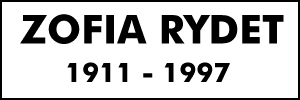
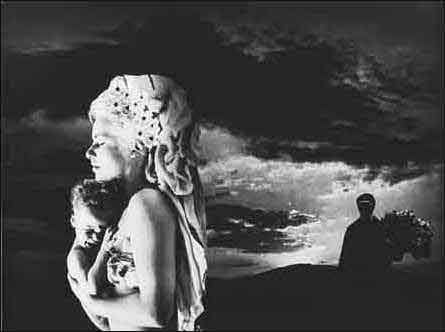
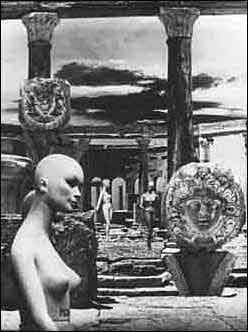
A wandering through the lives of other people, with a time-limit set at seconds. A journey across villages that may soon become the bottom of an artificial lake or the site of a cement-mill, or where in any case a new house will be erected in place of an old one. Visits to people with whom it may be impossible to make an appointment next year...
Are we entitled to speak thus about Zofia Rydet's photographs, knowing her for decades and responding to the warmth she emanates, evident in all her works, which she bestows on those dear to her and those met at the successive stages of her journey?
And yet, there may be two approaches to Zofia Rydet's photographs. We may just look at the interiors filled with a cacophony of objects and people, or we may try to understand the photographer's message that she seeks to convey by continually visiting people, dozens of them, in every expedition, and faithfulness to these people, all of them, though every day brings new faces and new biographies.
Let us think of the faithfulness, a virtue of the highest rank. First, to the people who have acted as hosts of Zofia Rydet's photographs since the mid 1950s. They add up to an entire generation beginning with the Silesian children in woollen hats and with faces stuck to the windows of tiny shops. The "little Man" is no longer little. He has experienced a good deal and grown mature because of what he had seen in life, all the drama and optimism. Some models of the photo-collages of the early 1970s (Świat uczuć i wyobraźni - The world of Feelings and Imagination) might have already paid the debt of nature; others, an allegory of rise and hope in this album, are just now verifying their expectations. They all seem of the same kind though they live in different places, the French town of Denain, Brooklyn, Lithuania, and all others who have invited Zofia Rydet once she had opened their door.
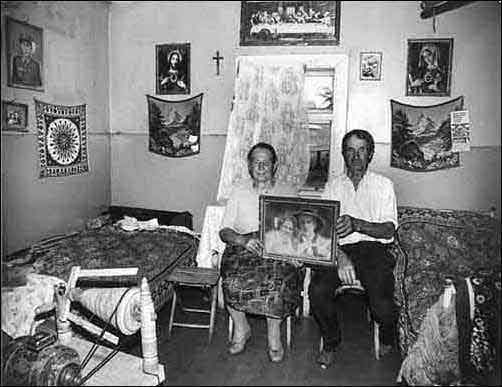
I am not going to say that they are a "family", which word would be false here. A family has a "hierarchy" and a "track" while Zofia Rydet's meetings always begin from the very beginning and there is no other recommendation except her opening gesture. She reassures people in their dignity, which she does in earnest and convincingly. "It is so nice here..." is her opening phrase in Andrzej Różycki's film "Nieskończoność dalekich dróg" (Endlessly Distant Roads). Thanks to this, though somewhat stiff, the people seen within the frames of her photographs show no signs of mental discomfort. Their postures manifest their moral identification with their biographies and environment that apparently includes no secret zones, no undercurrent of panic. Zofia Rydet allows them to sit frontally, as if imperially, with their hands, idle for, a moment, on their knees. An interesting relation occurs between the uniformity within the frames, the distance between the camera and the sitter, the lighting and processing, all of which are fairly arbitrary and stable in the "Zapis socjologiczny" (Sociological Record), and the respectful and faithful individualisation of the sitters' mental characteristics. What role does the adjective "sociological" play here anyway if there is a strong element of mutual attraction, a spark between the sitter and the photographer, something that sociologists are unable to predict and interpret?
Now the faithfulness to herself. Zofia Rydet does not like to express herself in words, and the sincere selfcomment, pointing out her views in several remarks, that we hear in Andrzej Różycki's film, is an exception to the rule. The underlying thought is that photography is an indispensable antenna of her personality (she does not use the word herself), functioning on an emotional plane, that the images of people in their households, the details of highways and paths in the "Endlessly Distant Roads", the vast views of hills, the three-dimensional "door" that she likes to construct of her photographs, and her poetic photo-collages always speak about the same knot between life and images. Zofia Rydet apparently believes that the bodily element does not exist only at the "receiving end" of photography but, thanks to the continuity of her tales, her images magically conjure up a different kind of life, peculiar to these places and characters, that seems to have grown to a multitude, based on the consistency rather than the sum of elements, and that is more durable than the model. This life of images exists on a symbolic plane.
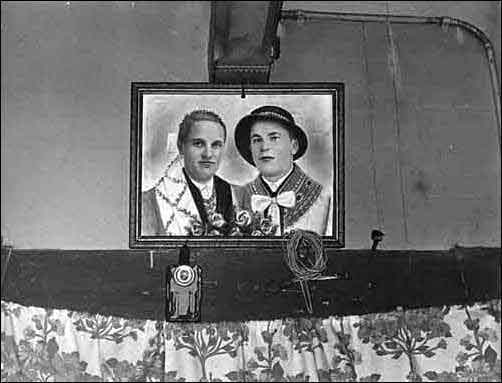
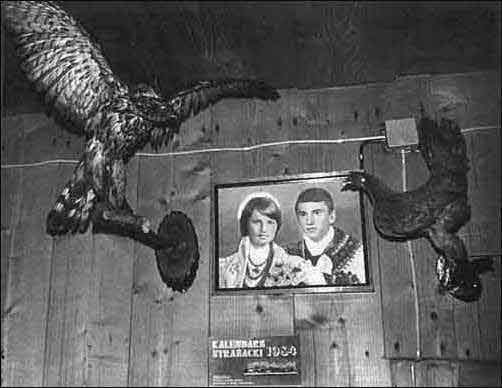
In this context, the recurrence of takes becomes a magic operation performed on life in its continuity and rebirth. The motif of an old woman standing in the door, also recurrent, is an allegory of femininity which conveys life from its latent stage out into the environment, and, constant and alert, spans the bridge between the intimate and the public. The figure in the open door brings out the absence of mental symmetry between things behind and in front of her. It also indicates the profound sources of courage and curiosity; a sense of rootedness, and of the life-giving past of the individual and the tribe.
The road, which seems endless within the poetic system of Zofia Rydet's vertical black takes, makes us realise that what we see, just a section of their area, length and side-space is, like life, a detail of a larger whole, going beyond the individual dimension. The road ends with the frame. Brilliant light is reflected from the pavement, and the curves make the eye proceed towards the unexpected, suggesting the unknown - binding, disturbing and challenging here. Therefore the road may be viewed as the summing up of the entire iconography of Zofia Rydet's photography as a generalisation of individual existence. It is not because the road has something impersonal about it, but because it is a triumph of continuity, courage and faithful wandering.
The message of these universal proposals worked out over the years of Zofia Rydet's consistent creative work gives her an exceptional position in European photography. She has a large public sensitive to her message in Poland and abroad, which reinforces the profound trend of her quest. But even without it, Zofia Rydet's vision sustained by what she derives from the very meaning of life, establishes itself, ramifies like a tree, and enriches all of us.Urszula Czartoryska
Translation: Joanna Holzmann
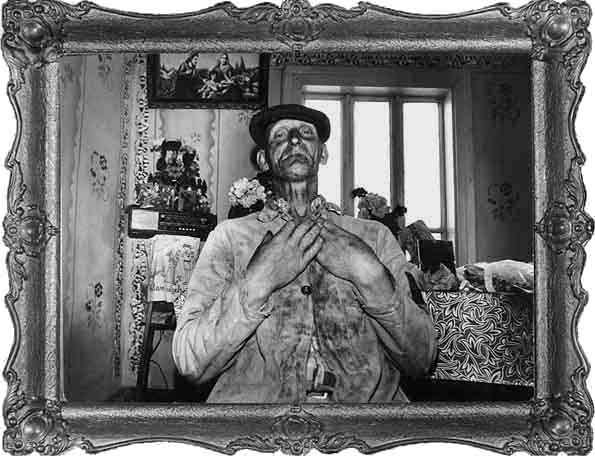
Copyright ©1997 Urszula Czartoryska, Zofia Rydet, Galeria FF ŁDK.